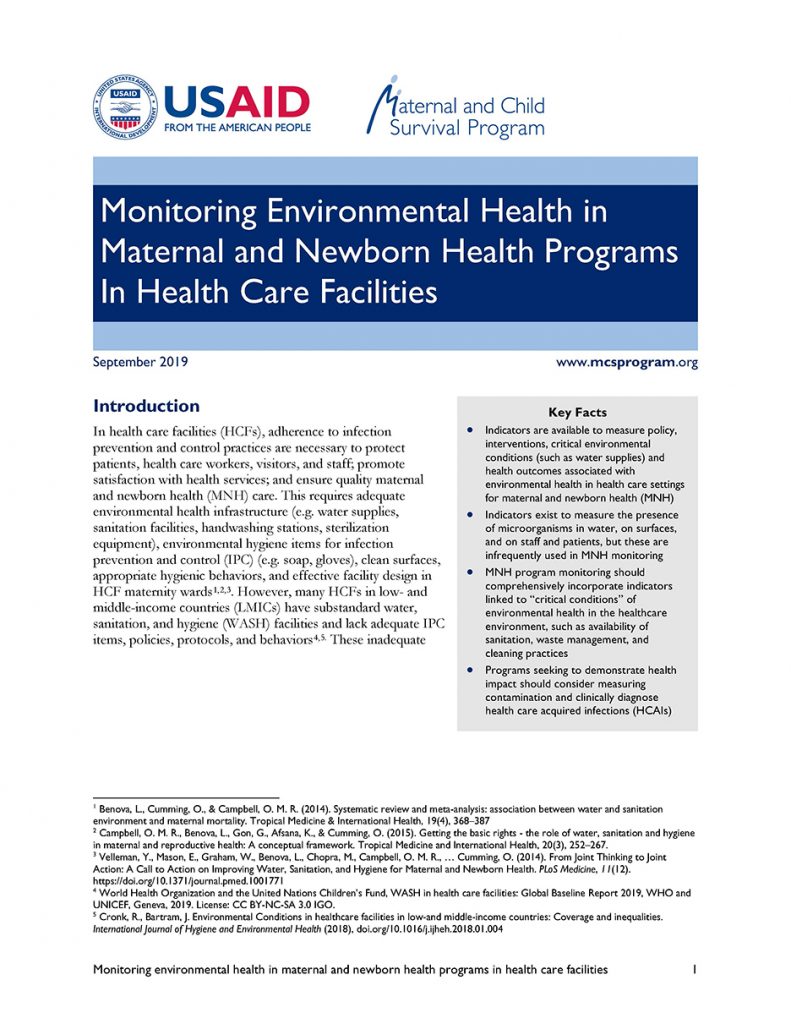
Many health care facilities in low-and middle-income countries have substandard water, sanitation, and hygiene (WASH) facilities and lack adequate infection prevention and control items, policies, protocols, and behaviors. These inadequate conditions lead to higher rates of health care acquired infections and increased rates of morbidity and mortality. The objectives of this brief are to review […]
Read More…
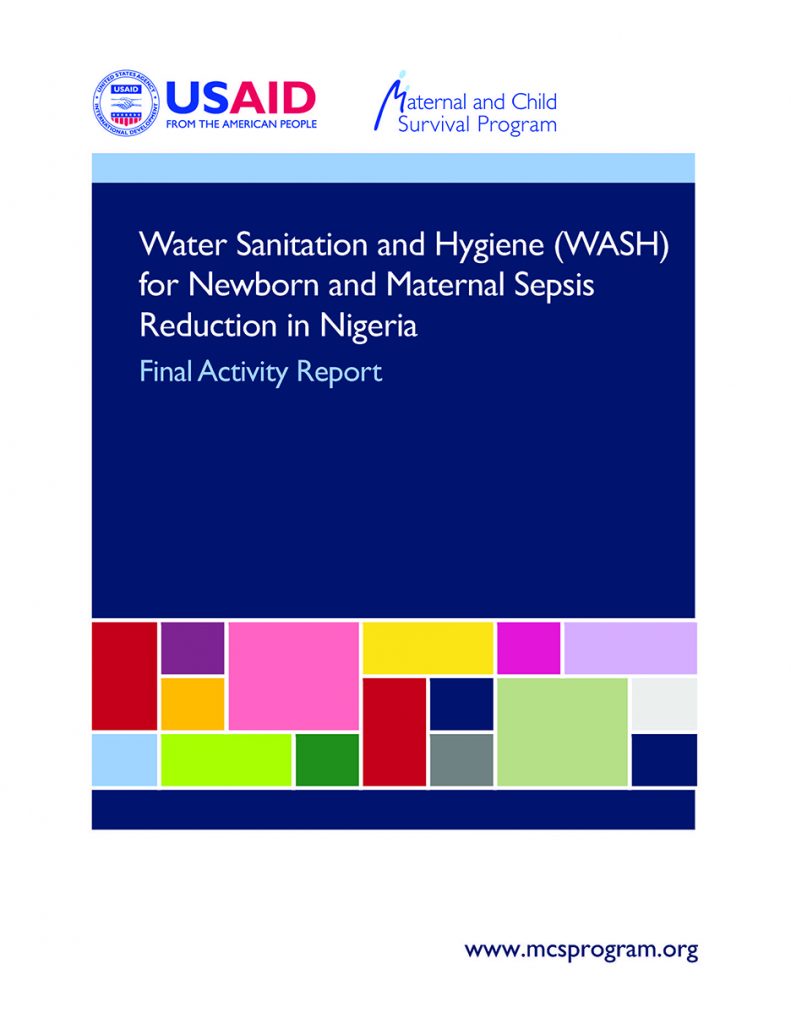
In an effort to improve the quality of facility- based MNCH services, MCSP launched a three-phased learning activity on improved hygiene for maternal and newborn sepsis reduction focused on improving hygiene around the day of birth in Nigeria. The purpose of this activity was to build on the quality improvement activities being implemented by MCSP […]
Read More…
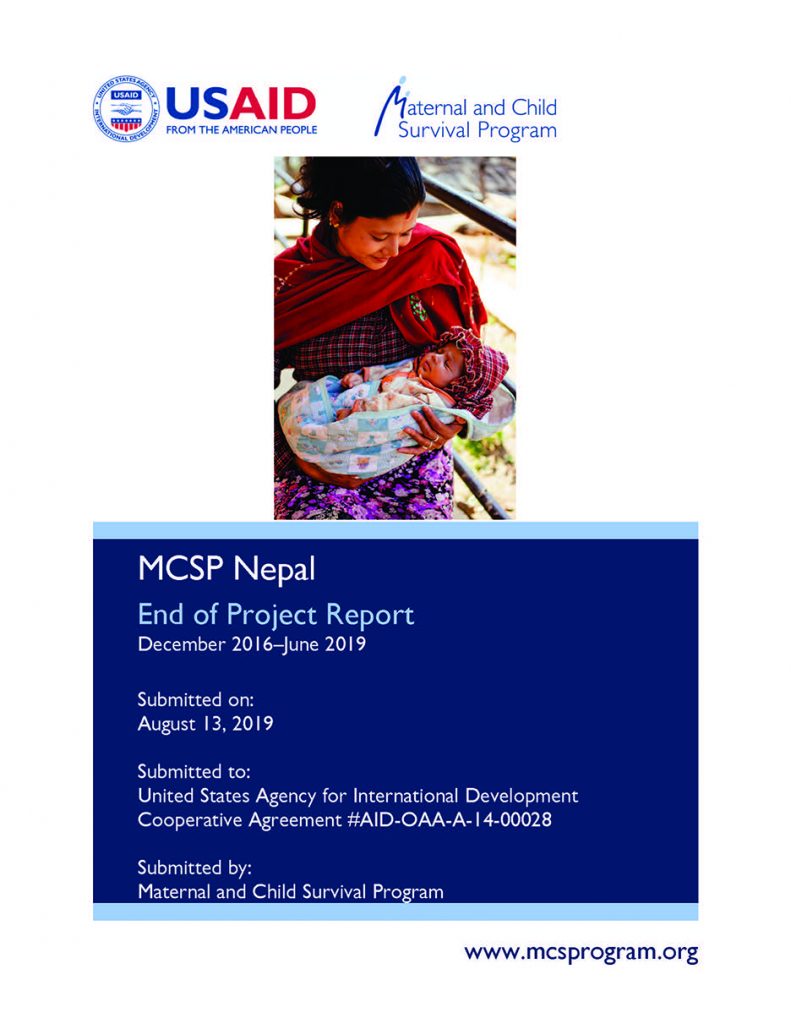
From 2016 to 2019, MCSP Nepal collaborated with the Ministry of Health and Population (MOHP) to develop and test strategies to empower private providers to deliver high-quality care for sick newborns and young infants. This included exploring safety and quality of care, promoting access to and use of clinical protocols, and establishing functional mechanisms to […]
Read More…
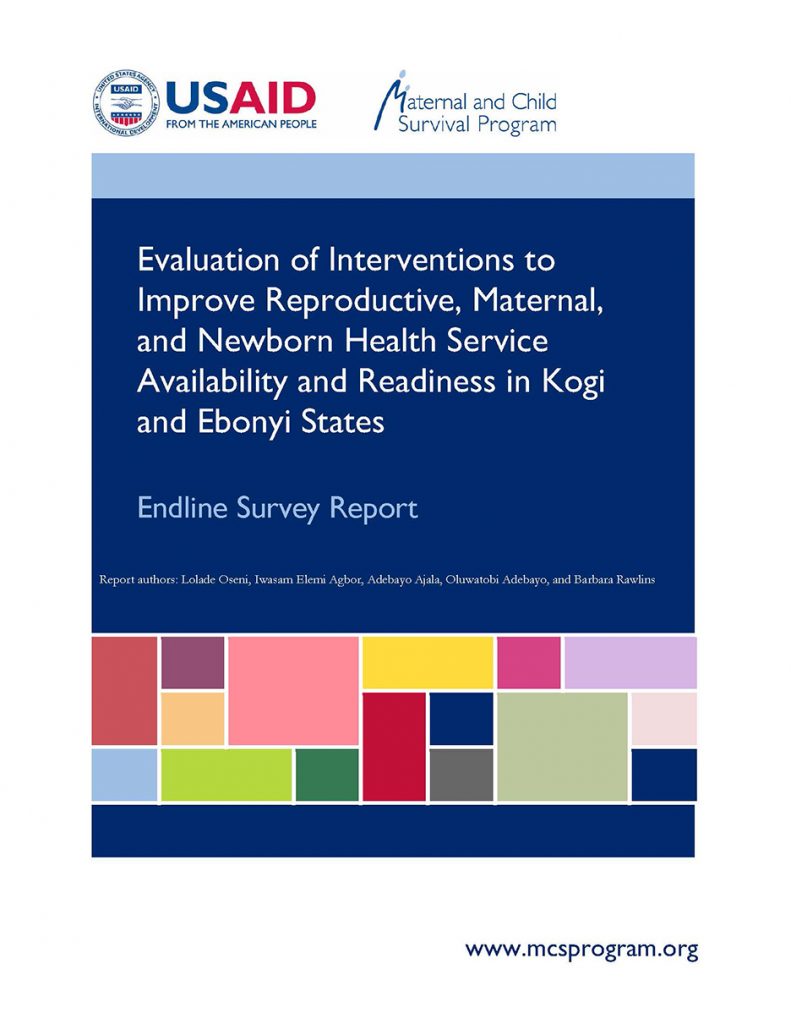
In Nigeria, MCSP focused on improving maternal and newborn health care services in Ebonyi and Kogi states by implementing high-impact interventions for better care on the day of birth when most maternal and newborn deaths occur. To determine the effect of MCSP’s RMNH quality improvement interventions in health facilities, baseline and endline quality of care […]
Read More…
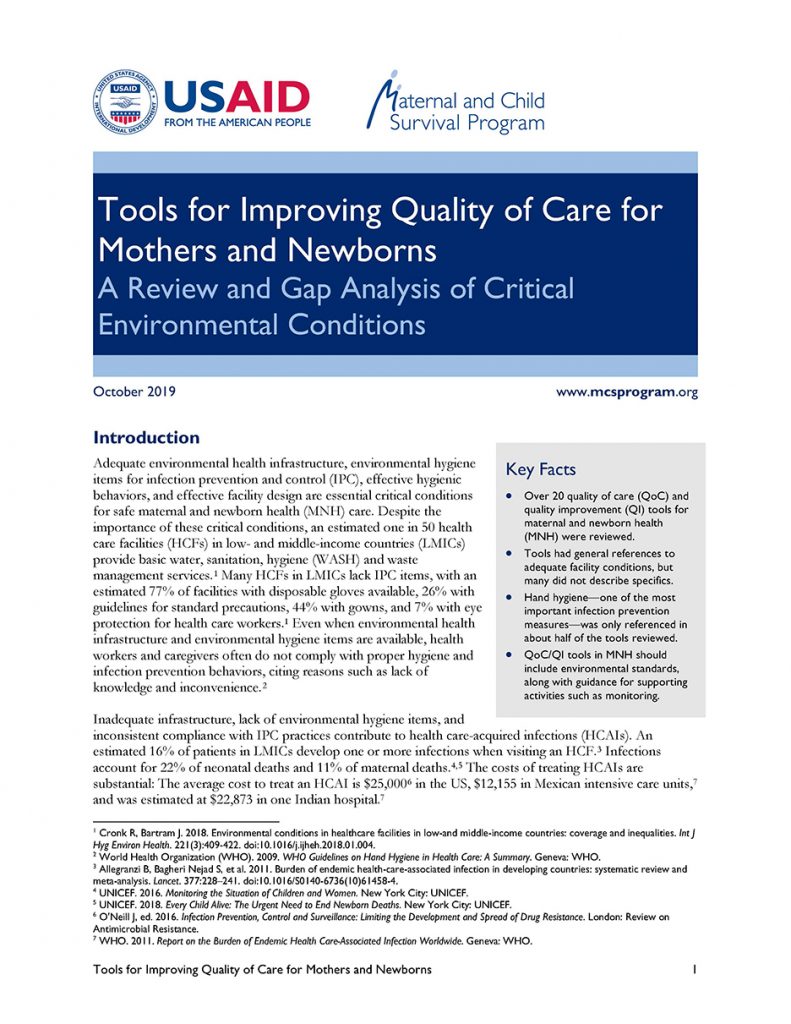
MCSP has worked to improve the care provided for mothers and their newborns during antenatal care, labor and delivery, postnatal care, child health, immunization, and family planning services through quality of care (QoC) and quality improvement (QI) programs. While many QoC/QI training and implementation tools are available, many do not describe the critical conditions necessary […]
Read More…
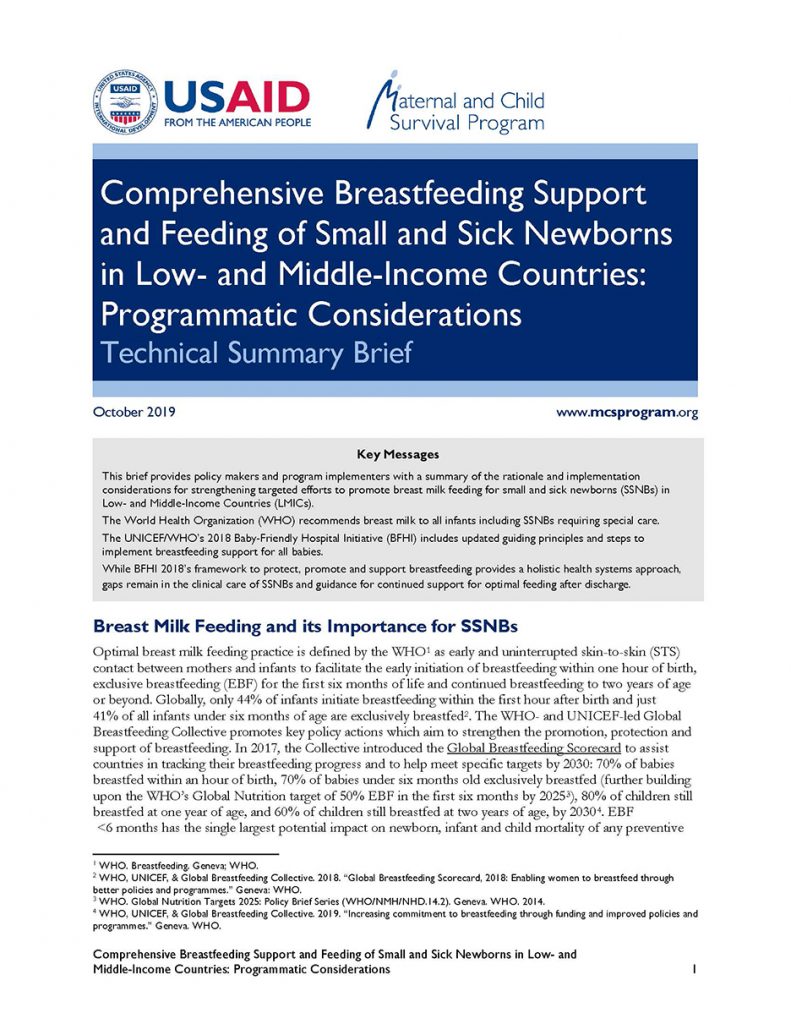
This brief provides policy makers and program implementers with a summary of the rationale and implementation considerations for strengthening targeted efforts to promote breast milk feeding for small and sick newborns (SSNBs) in Low-and Middle-Income Countries (LMICs). […]
Read More…
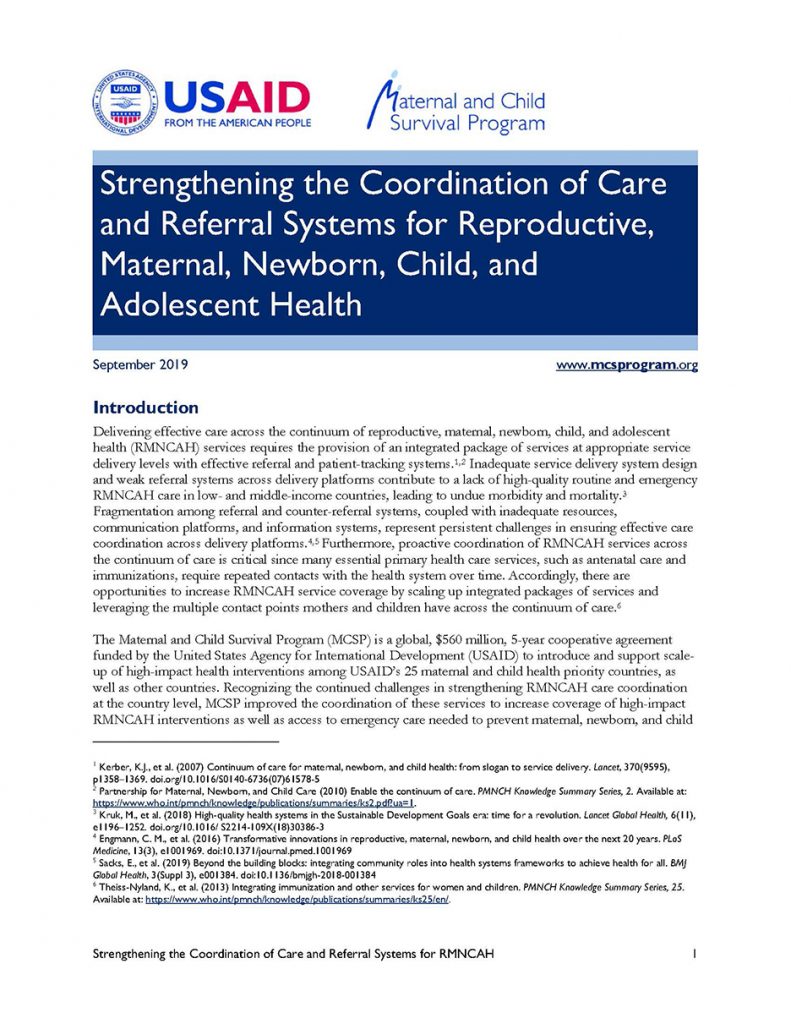
Recognizing the continued challenges in strengthening RMNCAH care coordination at the country level, MCSP improved the coordination of services to increase coverage of high-impact RMNCAH interventions as well as access to emergency care needed to prevent maternal, newborn, and child deaths. MCSP defines care coordination as a “proactive approach to bringing together care providers to […]
Read More…
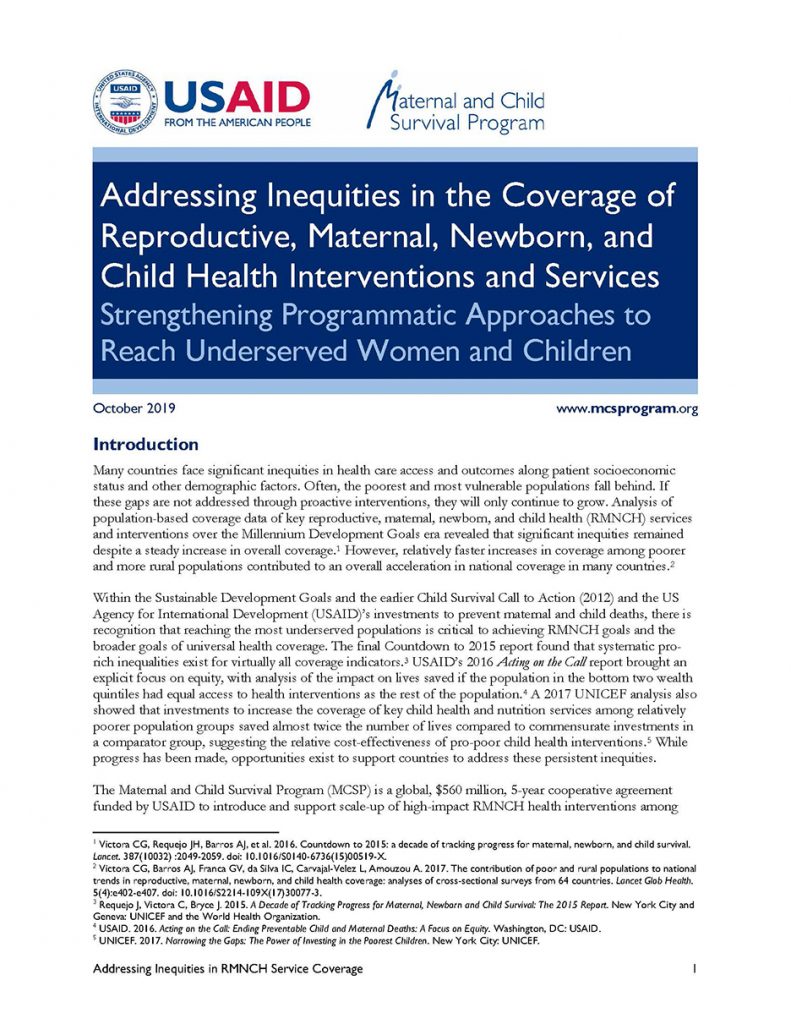
Recognizing the persistent challenges in reducing inequities in RMNCH service coverage, MCSP promoted equitable access to high-quality health care services and interventions for women, newborns, and children, and has used data to adapt programmatic approaches to address and learn from persistent equity challenges. This brief summarizes MCSP’s approach to addressing inequities, highlights key programmatic achievements, […]
Read More…
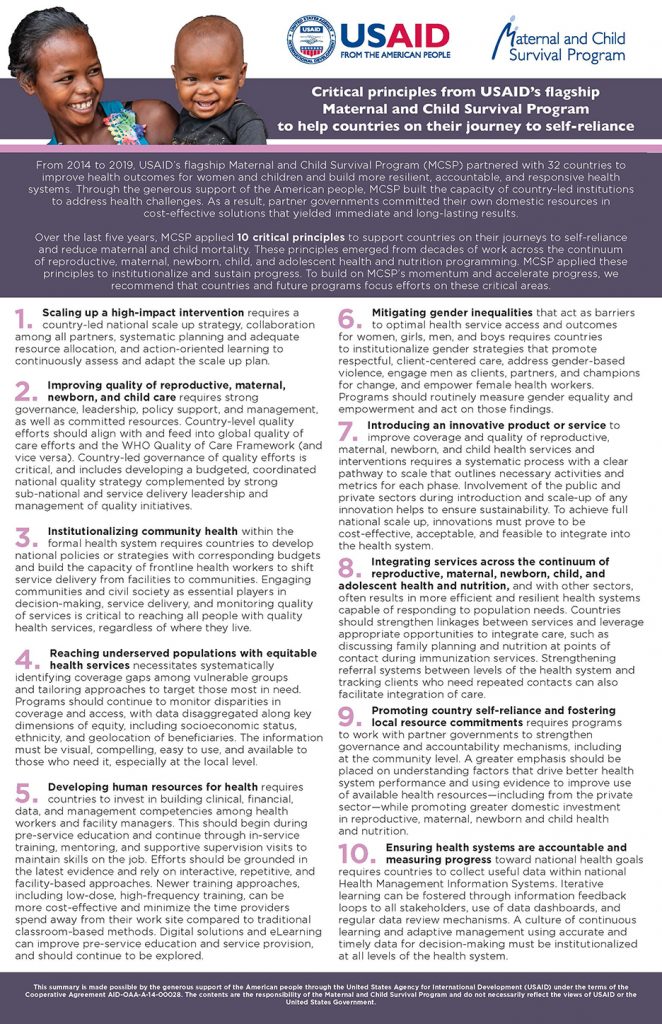
From 2014 to 2019, USAID’s flagship Maternal and Child Survival Program (MCSP) partnered with 32 countries to improve health outcomes for women and children and build more resilient, accountable, and responsive health systems. Through the generous support of the American people, MCSP built the capacity of country-led institutions to address health challenges. As a result, […]
Read More…
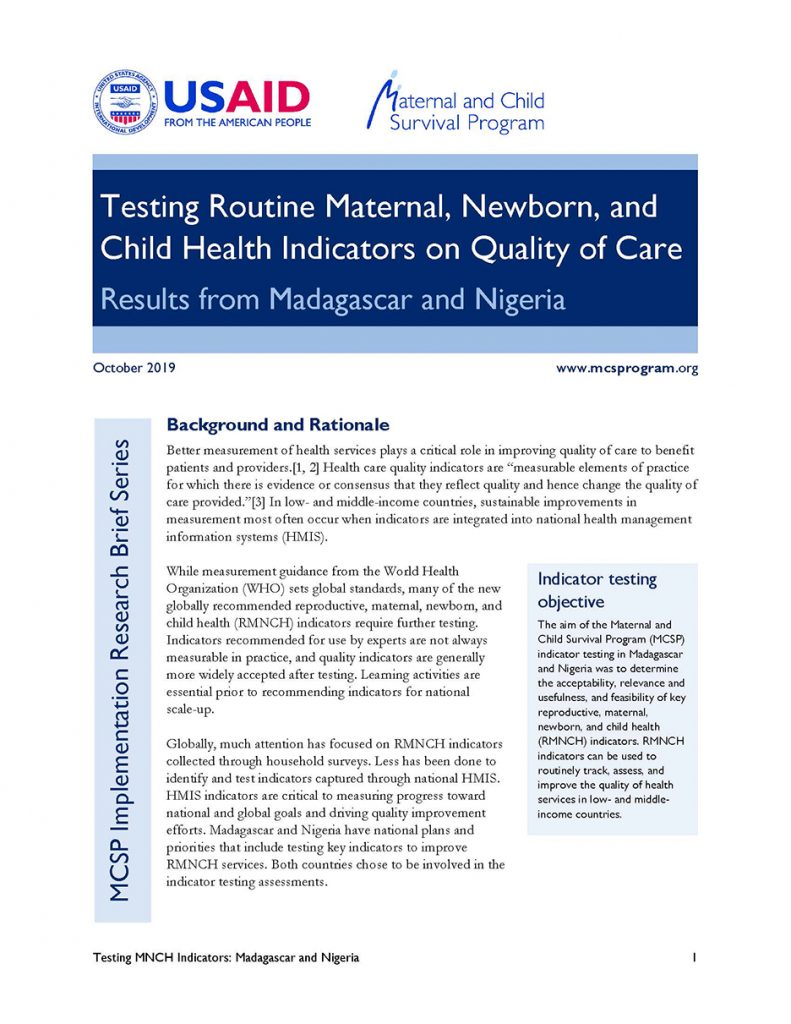
This brief presents findings from assessments of WHO-recommended routine RMNCH indicators in Madagascar and Nigeria. The aims of the two assessments were to determine the acceptability, relevance and usefulness, and feasibility of the indicators for quality improvement efforts. The assessments also looked into integrating the RMNCH indicators into the national HMIS. […]
Read More…










